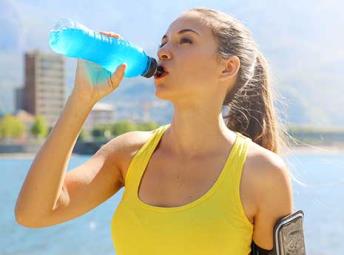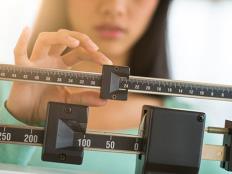Hey ladies, has your monthly "visitor" stopped coming? Some active women feel relieved when they no longer get a monthly menstrual period. (Yes! More freedom, less discomfort, no more cramps.) They may believe having no period is a sign they are training hard, like a real athlete. Others believe they have stopped menstruating because they are exercising too much or have too little body fat. No. Many very thin athletes who exercise hard have regular menses.
More: How Menses Affect Athletic Performance
Absence of periods (called amenorrhea) can be linked to serious health problems, including loss of calcium from the bones, almost a three times higher incidence of stress fractures today and long-term problems with osteoporosis in the not-too-distant future. If you should want to start a family, amenorrhea interferes with the ability to conceive easily, and can also contribute to future problems with infertility (even though normal menses may have returned).
Amenorrhea is not sport-specific. Sports that emphasize lightness (ballet, running) have the highest prevalence. Up to 44 percent of these athletes may experience amenorrhea (as compared to 2 percent to 5 percent of women in the general population).The question arises: among a team of female athletes, why do some of the women experience menstrual problems and others don't? The answer may relate to nutrition. Woman with amenorrhea commonly under-eat. Their bodies have inadequate fuel to support the menstrual process, to say nothing of nurture a baby. Under famine-like conditions, menstruation can stop to conserve energy.
More: Improve Your Relationship with Food
If you among the estimated 20 percent of active women who have missed three or more consecutive menstrual periods and are experiencing amenorrhea, please stop rejoicing and go see your gynecologist. Amenorrhea is abnormal. It can be a red flag for body image problems (i.e., claiming to feel fat even when emaciated), an intense fear of gaining weight or becoming fat, and restrictive eating. Amenorrhea is part of The Female Athlete Triad, along with low bone mineral density/stress fractures, and restrictive eating patterns/eating disorders. Amenorrhea can create undesired health issues.
More: How to Recognize the Signs of Female Athlete Triad
Resolving the Problem
If you no longer get regular menstrual periods and feel as though you are struggling to balance food and exercise, please get a nutrition check-up with a sports dietitian as well as a medical check-up with your doctor or gynecologist. To find a sports dietitian in your area, use the Academy of Nutrition and Dietetics referral networks at www.SCANdpg.org or www.eatright.org.
The most important change required to resume menses includes matching your energy intake with your energy output, so you eat enough to support both exercise and normal body functions. Historically, doctors gave the birth control pill to women with amenorrhea; this forced menstrual bleeding. But taking the birth control pill is a "Band-Aid approach" and does not resolve the underlying problem.
- 1
- of
- 2
About the Author

Sports nutritionist Nancy Clark MS RD CSSD has a private practice in the Boston-area (Newton; 617-795-1875), where she helps both fitness exercisers and competitive athletes create winning food plans. Her best-selling Sports Nutrition Guidebook, and food guides for marathoners, cyclists and soccer players, as well as teaching materials, are available at www.nancyclarkrd.com. For online workshops, visit www.NutritionSportsExerciseCEUs.com.



Discuss This Article